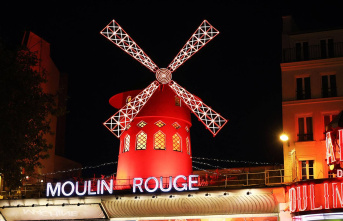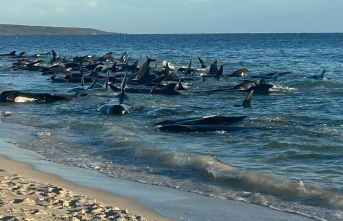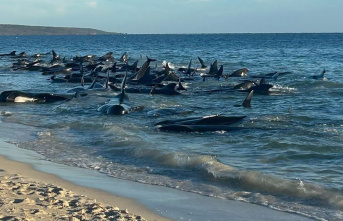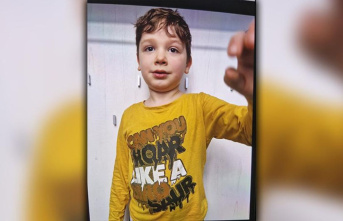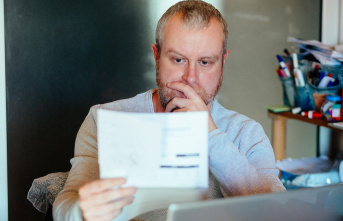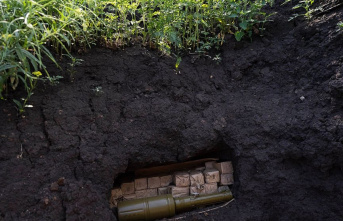The President of the United States, Joe Biden, opened the IX Summit of the Americas on the night of Wednesday, June 8, together with 21 heads of government and state of the 35 that the continent has, and he did so with a passionate defense of the values democratic, and the announcement of a new migratory pact and an investment and economic cooperation program of which he did not give great details.
"Democracy is not only the defining characteristic of the history of America, but an essential ingredient of its future," Biden proclaimed in Los Angeles, after the controversy over the unsuccessful campaign of several guests to invite the dictators of Cuba, Venezuela and Nicaragua. “We may not agree on many things, but since we are democracies, we overcome our differences with respect and dialogue,” added the US president, although leaders such as the Mexican Andrés Manuel López Obrador have refused to come to dialogue.
The opening ceremony was at the Microsoft Theater, where the Emmy, Grammy and other glamorous award ceremonies are usually held. The organizers wanted to live up to such a venue and subjected attendees to a thunderous light and sound show with fanfare, videos and a Latin music concert, including a rejuvenated version sung by children of Gloria Estefan's "Mi Tierra". . After receiving the dignitaries who have traveled to Los Angeles, Biden and his wife took a seat next to Colombian Iván Duque, who is soon leaving office.
After the welcome by the mayor of the city, the governor of California and the vice president Kamala Harris, born in this state (all of them Democrats), the Peruvian president, Pedro Castillo, took the floor, dressed in a suit and shirt, but without his usual hat chullo. It was his turn to speak because the previous summit was in Lima in 2018. He was the only foreign head of state to address the congregation. Castillo angrily denounced corruption on the continent, although he is being investigated for it in his country. "America for Americans!" He exclaimed, after thanking Biden for his hospitality.
Among the 22 leaders who have accepted Biden's invitation to this summit, only one is late for Los Angeles and missed the opening ceremony this Wednesday: Jair Bolsonaro, who is campaigning in his country, and is at risk for re-election. in October. Before his trip, Bolsonaro doubted that Biden would win the 2020 elections cleanly, echoing the laments of his friend Donald Trump.
Arriving late, Bolsonaro missed a very heartfelt concert by Álex Fernández, ranchera music singer, son of the late Vicente Fernández, who made many of the heads of state and their wives sing "and cry, cry, cry."
In his speech, Biden announced what he called the Alliance for Economic Prosperity in the Americas, an agreement for cooperation and innovation in both the public and private sectors, which includes support for countries that host large numbers of immigrants or refugees. . "By collaborating with our partners, those who share our values, we can ensure that we are not left vulnerable to the unexpected, while creating opportunities for economic growth in our area," Biden said.
At the same time, the White House announced a series of initiatives dedicated to improving the Central American economy and discouraging emigration, including investments committed by the private sector worth 2,000 million dollars, or 1,800 million euros, and public aid of 300 million. In addition, a reform of the Inter-American Development Bank, IDB, was announced to strengthen investments in the private sector in the continent.
The summit continues this Thursday, focused on environmental issues, and ends on Friday, when the leaders are expected to announce a major migration agreement with the so-called "Los Angeles Declaration."
During the pandemic, the US has detained record numbers of undocumented immigrants. Between March 2020 and December 2021 alone, the Border Police arrested three million undocumented immigrants and returned half of them to Mexico. The vast majority are Central Americans and Haitians. Those arrivals are also on the rise. Only in April of this year, the last month for which there are official figures, the immigration authorities detained more than 260,000 without papers. More than six million Venezuelans have fled the country in recent years.
As the White House admitted this week, the US has been negotiating with Spain to be part of that great migration agreement and that is why the Foreign Minister, José Manuel Albares, attends as an observer guest, although the Spanish Government has not yet given details of your visit. According to a US official in conversation with the press, Spain has been a crucial part of the negotiations prior to this meeting of leaders from Latin America and the Caribbean. Last week, several US media reported that Spain has been negotiating with the White House to take a quota of Central American asylum seekers.
The Summit of the Americas actually began on Monday with meetings prior to the arrival of the Heads of Government, but until Tuesday there was no definitive list of attending leaders. At the last minute he said that the president of Mexico, Andrés Manuel López Obrador, would be absent. And neither do the presidents of Central American countries from which the majority of asylum seekers leave in the US: Honduras, Guatemala and El Salvador.
The White House has not wanted to interpret the absences as an affront to Biden, and has attributed them to very varied reasons. The National Security Council of the White House, Jake Sullivan, said yesterday that although there are absent presidents, such as that of Mexico, they have sent ministerial delegations, so they will be able to sign the agreements reached. "The fact that those leaders are not coming is, in each case, a reflection of idiosyncratic decisions that each of them are making, and I honestly wouldn't make a big deal out of it," Sullivan said.


